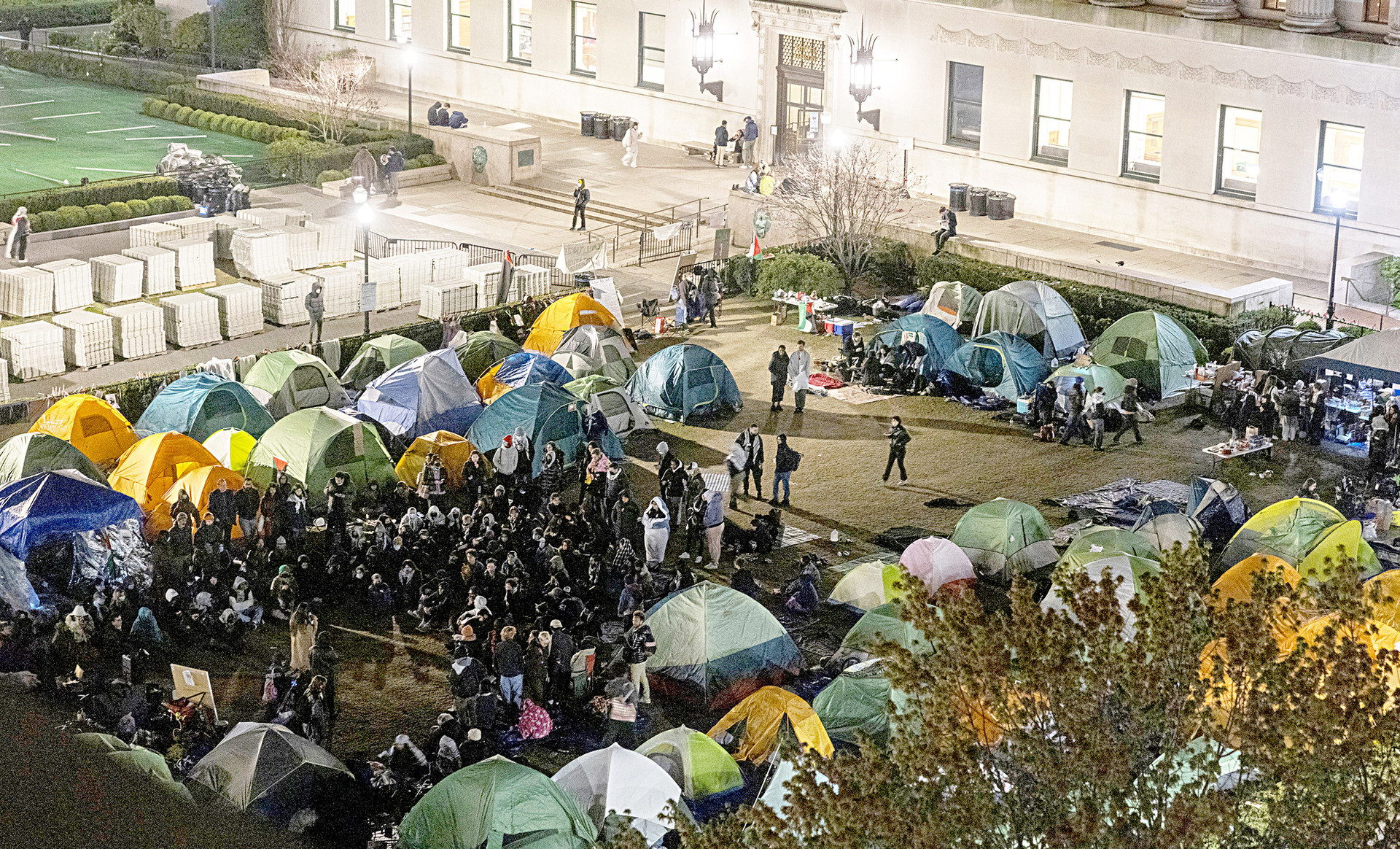Protests in support of Palestinians and calls for an end to Israel's war in the Gaza Strip are taking place at at least 50 universities in the United States.

As of April 27 (Vietnam time), students have set up protest tents on the campuses of at least 50 universities and colleges in the US, from famous Ivy League schools to public schools. Many students said they will not stop protesting until their demands are met.
Students at Columbia University were among the first to speak out against Israel’s war in Gaza. Since mid-April, they have set up tents, called for a lasting ceasefire in the Gaza Strip, and demanded that their university divest from Israeli and American arms manufacturers.
While Columbia University remains the epicenter of the student antiwar movement, attention has also spread to other campuses, from the University of Southern California in California to Emory University in Georgia and Emerson College in Massachusetts. On April 26, about 200 protesters gathered at George Washington University, a few blocks from the White House, carrying “Free Palestine” posters.
In addition, students also asked their schools to be transparent about their investments, to cut academic ties with Israeli universities, and to support a ceasefire in the Gaza Strip... According to the Ministry of Health in Gaza, more than 34,000 Palestinians, mostly women and children, have been killed in the six-month conflict between Israel and Hamas.
Student protests have sparked heated debate across the United States about how universities can allow free speech while keeping students safe and maintaining order.
Some schools have chosen to cooperate with the police to stop the protests, leading to clashes and arrests. Hundreds of people have been arrested for refusing to dismantle their tents and violating school rules. According to Bloomberg News, as of 5 p.m. on April 26 (Eastern time in the US), nearly 600 protesters have been arrested on university campuses. Scenes of students and professors being arrested by police have caused outrage.
Meanwhile, some university leaders have also faced criticism. Columbia University President Nemat Minouche Shafik is facing fierce opposition from students, faculty and outside observers for allowing New York police onto campus on April 18 to remove tents.
That same day, police arrested more than 100 people and removed tents from the main lawn of the Manhattan campus. But protesters quickly returned and set up tents again. After failing to end the protests two weeks ago, Columbia University officials turned to student negotiations, which have so far been unsuccessful.
In Texas, Jay Hartzell, president of the University of Texas at Austin, faced a similar backlash from faculty on April 26, two days after he and Governor Greg Abbott called on police to disperse a pro-Palestinian protest.
Most student protests across the United States have been peaceful, but some elements of the protests have been described as "anti-Semitic" and concerns have been expressed about threats to Jewish students. Anti-Semitic slogans and posters have been displayed at some protests.
Most protest organizers across the country have stressed that violence should not be used. But safety concerns have been growing at educational institutions, leading many to move classes online and cancel graduation ceremonies. This week, the University of Southern California announced it was canceling its May 10 graduation ceremony.
American sociologist Joan Donovan (Boston University) noted that the protest movement needs to be extremely vigilant against far-right agitators trying to infiltrate the movement with the aim of undermining the original message.
White House spokeswoman Karine Jean-Pierre said President Joe Biden supports freedom of speech but condemned “anti-Semitic protests” and stressed that American college campuses need to be safe. Some Jewish students said the protests had turned anti-Semitic and were afraid to come to school.
It is unclear when the protests will end. On April 26, Columbia University students, who have inspired protests against the war in Gaza across the United States, said they were at an impasse with school officials and intended to continue their protest tents until their demands were met.
Protests in support of Palestine and against Israel’s war in the Gaza Strip have also spread to universities outside the United States, from France to Australia. In France, students from the Paris Institute of Political Studies occupied a central building on campus on April 26, shouting pro-Palestinian slogans. In Australia, students set up tents at the University of Sydney, demanding that the school cut ties with Israeli universities and arms manufacturers.